Guest article provided by: nomadneeks.com
Written by Nicole Vilaca (Nomad Neeks)
Being a digital nomad offers a wide variety of freedom and flexibility, but it also has challenges when it comes to managing finances. In this article, we’ll discuss the right tools and strategies to help you stay financially organized on the road and ensure that your nomadic lifestyle doesn’t interfere with your financial stability.
Understanding Financial Management for Digital Nomads

One of the biggest advantages of staying financially organized is the peace of mind it brings. By tracking your expenses and income and checking in on a weekly or monthly basis, you’ll be able to better manage your budget and make informed financial decisions.
Additionally, having organized financial records will make it easier when tax season rolls around or when you need to apply for a loan or a visa.
By analyzing your expenses, you can identify areas where you may be overspending and make needed adjustments. This can help you save money and allocate your resources more effectively while on the road.
Some key tools I recommend for budgeting and managing your income and expenses on the road? Mint, YNAB, Copilot, or using a good ol’ Excel Spreadsheet. Whatever works for you is best!
Financial Management Concepts for Digital Nomads
When it comes to managing your finances as a digital nomad, there are a few key concepts that you should be aware of.
First and foremost, having a budget of some type is essential. Creating a budget or money flow tracker will help you understand how much money you need to earn, how much you can spend, and how much you should be saving (you can grab mine here!)
Being conscious of your income and expense flow also allows you to prioritize your expenses and allocate your funds accordingly. It helps you make conscious decisions about where your money goes, ensuring that you’re spending on things that truly matter to you. Whether it’s investing in experiences, saving for future goals, or building an emergency fund, budgeting empowers you to align your financial choices with your values.
And of course, as a digital nomad, it’s crucial to have a plan for saving and investing for the future, as well as understanding how taxes work for digital nomads. Where will you pay taxes, where will you hold a savings and investing account, and where will your money be managed?
As a digital nomad, that answer isn’t always an obvious one, but is one that you can choose the option that’s best for your lifestyle.
Strategies for Staying Financially Organized on the Road
While financial tools are crucial, they are just one piece of the puzzle. To truly stay financially organized on the road, you’ll need to adopt certain strategies and habits.
When it comes to managing your finances as a digital nomad, there are a few budgeting techniques that can help you stay on track.
First, creating a budget of some sort is the foundation of financial organization. Start by determining your monthly income and fixed expenses, such as accommodation, travel costs, food, rent, and insurance.
Then, allocate funds to your variable expenses, such as transportation, food, and entertainment. Don’t forget to set aside some money for savings and emergencies.
By having a clear budget in place, you can ensure that you have enough funds for your essential needs while still enjoying your travels.
However, budgeting is just the beginning. Tracking your expenses while traveling is equally important. Whether you prefer using a mobile app or a spreadsheet, make it a habit to record your expenses regularly. This will help you understand where your money is going and identify any unnecessary spending habits.
By keeping a close eye on your expenses, you can make adjustments to stay within your budget and avoid any financial surprises.
Another strategy for staying financially organized on the road is to automate your finances as much as possible. Set up automatic bill payments and savings transfers to ensure that you never miss a payment or forget to save. This can help you stay on top of your financial obligations, even when you’re busy exploring new destinations.
And lastly, consider using digital tools and apps that are specifically designed for digital nomads. These tools can help you manage your finances, track your expenses, and even provide insights into your spending habits.
I love using the XCurrency app to easily convert multiple currencies, and the Timebuddy app to easily convert time zones for meetings. Game changers!
Planning for the Future: Financial Security for Digital Nomads
While it’s important to focus on the present, planning for the future is equally crucial. As a digital nomad, you need to consider how to ensure your financial security in the long run.
Saving and Investing for Digital Nomads
Building a savings buffer and investing for the future are essential for financial security. Set aside a portion of your income each month to build an emergency fund and save for your retirement. Explore investment options such as stocks, bonds, and real estate, keeping in mind your risk tolerance and long-term financial goals.
Retirement Planning for a Nomadic Lifestyle
Retirement may seem far off when you’re enjoying the freedom of a digital nomad lifestyle, but it’s crucial to start planning early.
Think about setting up a retirement account and regularly contribute to it. Explore retirement vehicles that offer tax advantages, such as individual retirement accounts (IRAs) or self-employed 401(k) plans. Remember, the sooner you start planning for retirement, the greater the potential for long-term financial security.
For those nomads who have optimized their taxes and reside in another country, be sure to investigate which tax-advantaged accounts that country offers. Perhaps you will even need to create your own, which can be reality for many nomads. Being prepared and knowing these things before you hit retirement age is important.
In conclusion, staying financially organized as a digital nomad is essential for maintaining stability and peace of mind. By understanding the importance of financial management, leveraging the right tools, implementing effective strategies, and planning for the future, you can navigate the financial challenges of a nomadic lifestyle confidently.
Take the time to assess your financial situation, explore the available tools, and start implementing the necessary steps to stay financially organized on the road.
